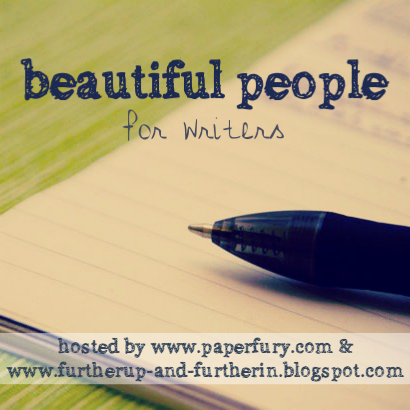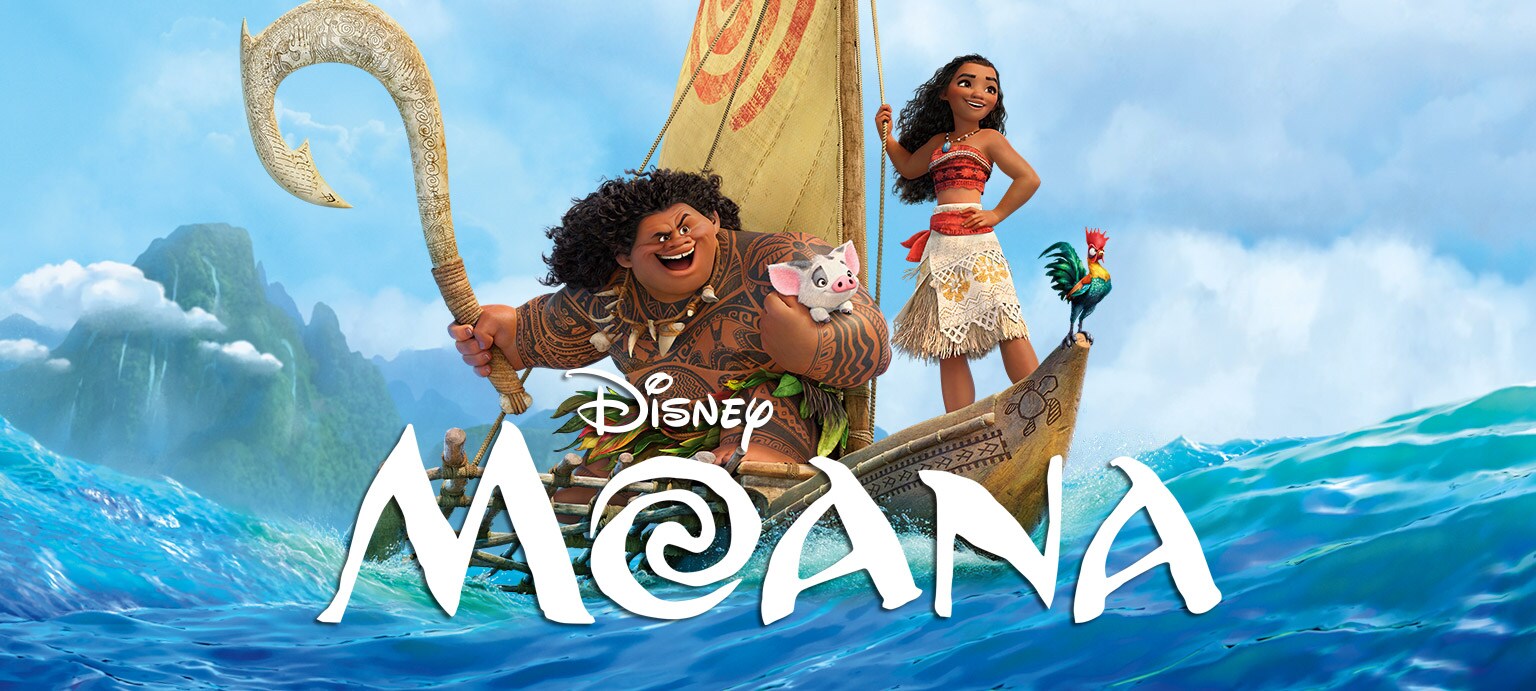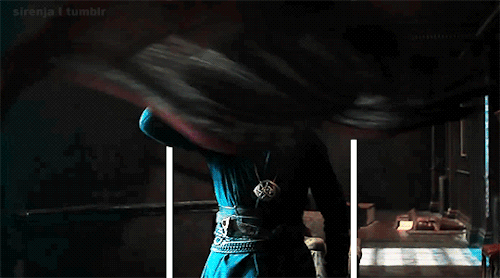You may remember him from Four Elements of a Successful Villain, a guest post he did here over a year ago. Or you may recall that he and I shared college adventures recently. You may also be unable to forget that, ahem, darling picture of him and I dressed as Mario and Princess Peach (featured in S&S May 2017) .
Josiah neglected to give me an official bio for this post, leaving his introduction in my very capable hands. (I've known the guy for nineteen years, so I'd like to think I'm an expert at this sort of thing.) Josiah is the creatively inclined, fastidiously detailed, uproariously funny person responsible for many a brainstorming session or Marvel fest in my household. Stories were what paved the way from our squabbling phase of siblinghood to the friendship phase we enjoy now. He's got a quirky sense of humor, an affinity for puns, and a boatload of patience developed by the trials of having three sisters.
Without further ado, please welcome Josiah Dyck to the stage!
Tracey: Art and life have a way of intersecting. How does your life
influence your art, and how does art influence your life?
Josiah: Interesting question! I think that my life influences my
art—or, more specifically, my writing—in a host of different ways. When I
struggle in life, I can work those struggles into my writing. My story The Tournament of Convicts is a good
example of this. The main character fights against the feeling of never seeing
his dreams come to pass. This is something I’ve had to fight as well, and that
makes it more poignant in the story. Another scenario is for my first book in
The Portal Chronicles. One of my characters, Mark, tries to prove himself
because he wants his parents to be proud of him. I can relate to this, which
strengthens the story’s emotion.
If there are things I’ve wondered and want to work out,
stories are good places to do that. For example, Of Beauties and Beasts toys with the concept of actions and
consequences, especially when said actions were bad, but the intentions were
good. Darkened Slumber deals a lot
with honor and asks if someone can be honorable when they’ve killed someone
else. Maelstrom is going to be
focused on grace versus judgement, especially when people don’t deserve grace.
Being able to figure these things out on the pages of a novel is always a joy
to do in the end.
Through this answer, I think I’ve also partially answered the
second part of this question. By working through the struggles and questions I
have, my art influences my life when I find the answers. Also, when one is a
writer, one pays attention to different things than most people would. I
sometimes try to remember how someone looks so I can incorporate part of them
into a character. I’ll notice quirks, habits, and mannerisms—all worth noting
should I someday want to use them. I could go on, but I think I’ve rambled on
long enough for this question, seeing it’s only the first one.
Tracey: You write, but you also engage in a number of other creative
outlets—both as creator and as an audience member. What creative art forms
influence your writing?
Josiah: ALL OF THEM. Well, I should specify that every art form I
engage in has an impact on my writing. That includes books, movies/TV shows,
music, video games . . . There are art forms (e.g. dance, theater,
painting/drawing) that either don’t have any influence, or only a bit, but
maybe that’s because I don’t participate in these outlets. I couldn’t tell you
which one has the most power in my writing, but what I do know is that my
writing is indeed impact by the major forms of art I engage in.
Tracey: Soundtracks are a big favorite of yours, and I know that
asking you to pick a favorite is cruel of me . . . but tell us. What’s your
favorite soundtrack? (You can stab thank me later.)
Josiah: Ha. Ha. Ha. You just had to pull this one, did ya? I can’t
pick one favorite, because I’ll think of another and think to myself, “Oh yeah,
there’s that one, and that one, and that one . . .” Pretty soon, I’ll be saying
all of my soundtracks are my favorite.
But whenever I’m asked this question, one soundtrack often
comes to mind, so I’ll just use that one. If someone were to ask me what you
just did, I might be tempted to say that the Mad Max: Fury Road soundtrack (the
extended version of it) is my favorite. “Why?” you might be asking. Because
Junkie XL is a phenomenal composer, that’s why. You start off with lots of
intense or suspenseful sequences, filled with scratchy strings, pounding drums, and
eerie sounds I can’t properly describe. Then, out of the blue, an emotional
theme appears in the music. You’re hit with tracks that seem to be influenced
by classical music. Suddenly, this soundtrack is very different than what you
initially thought. It’s just so amazing! Hans Zimmer himself describes the
soundtrack as being “absolutely phenomenal and mind-blowingly brilliant.” Which
should tell you something about the Fury Road score.
Tracey: If you had a theme song that played whenever you walked into
a room, what would it be?
Josiah: I have legitimately thought about this beforehand, and all
my answers are goofy ones. Like, if I walked into a room and the Imperial March
started playing, or the Black Rider theme, I’d find that absolutely hilarious. But
if I were to seriously consider a theme, maybe Rohan’s theme? Or perhaps Ballad
of the Goddess from The Legend of Zelda: Skyward Sword. Ooh, there’s also the
LEGO Ninjago overture! So many to choose from, and I don’t which I’d pick. I would
probably change it . . . a lot.
Tracey: Who are some of your fictional heroes, and why?
Josiah: Obviously, the first one on this list is Captain America.
He’s such a patriotic hero who upholds his morals, and when he’s made a
decision, he’s determined to stick with it. He was one of the first superheroes
I saw in a movie, and I couldn’t help but love his character. I just don’t
understand people who think he’s lame. Obviously, such people don’t know a
great hero when they see one.
Another hero would be the Flash—as in, Grant Gustin’s
version. He strives to be a noble hero, but at the same time, he’s also very
human. He makes mistakes and doesn’t always admit it right away. He wrestles
with the punches life keeps throwing his way. I love the combination of
hero/human, because then I look up to him and identify with him. He’s a
relatable character, and that makes him awesome.
Finally, Charlie West from Andrew Klavan’s Homelanders
series is one of my heroes. He’s fiercely loyal to his country and will go
great lengths in his fight for it. He’s also got a family, friends, and a
girlfriend who he loves and wants to protect. I cheered for him throughout the
whole series. He has to be one of the most memorable protagonists I’ve read in
a book series. (I don’t know about you, but I’m detecting a theme here.)
 |
| Captain America // The Flash // Charlie West featured on the cover of The Last Thing I Remember by Andrew Klavan |
Tracey: If you could spend a day with any character, yours or
someone else’s, who would it be? And what would your day together look like?
Josiah: Gah, this is so hard. I think I’m going to cheat and say I’d
love to hang out with the three main characters from my Portal Chronicles
books: Mark, David, and Warren. They would be so much fun to spend a day with!
We would probably do things like go watch a movie in theaters and then rave or
rant about it afterward; we’d play video games and probably do it loudly; we
would go to a cozy café, sit down with beverages, and just talk about life. Now
you’re making me wish I could actually do this. You wouldn’t happen to know how
to make book characters come to life, would you?
Tracey: You’re a very detailed movie-watcher. What things do you
look for or notice first in a movie?
I’ve never really thought about this. I guess one of the
things I notice is the music. Because I love soundtrack and am always on the
lookout for something new to listen to, I’ll pay attention to the movie’s
score. This, however, doesn’t happen all the time. There usually has to be
something that triggers it. One case of this is in Big Hero 6. During the chase
scene in San Fransokyo, the music changes from orchestral to electronic with
electric guitar. My ears perked up, and I decided to give the soundtrack a
listen.
| San Fransokyo |
There are other things I look for, such as an opening that
catches my attention, characters that I can feel emotional about, a gripping
plot, cool camera angles, realistic sets, et cetera. Like I said, I haven’t
even thought about this before. I suppose I’ll be paying more attention to that
now.
Tracey: You don’t hesitate to follow the advice, “Kill your
darlings.” Talk to us about character deaths—what is their value, how do you go
about it, what to avoid, etc.
Josiah: Ah, yes, I do tend to kill off a number of my characters. I
think they’re valuable because they heighten the emotion of the story, and
that’s our number one goal as writers: to give the readers an emotional
experience. Plus, there are other reasons for killing off a character.
Sometimes you need to raise the stakes and show the danger of what the
protagonists are doing. Other times, a villain’s demise is just satisfying.
The way I do deaths, if I want the readers to care, is to give
them plenty of reasons to become attached to said character. When readers love
characters, the scene of their death will be so much more powerful. There are
some character deaths where I do it “at a bad time,” if you will. If the
protagonists are at the crux of the plot, when things are getting darker and
hard, kill one of them off. Make things even more difficult for the others.
Another idea to do it is when there should be satisfaction,
like when a final battle has been won. Mortally wounding a character just at
the end increases the emotion. Or perhaps things are finally looking up for
your character; kill them, and your readers will become frustrated—in a good
way, of course. I’ll even give the villains a bit of humanity to spark even a
little bit of emotion from the readers.
However, here is my major precaution in character deaths: if
they’re supposed to matter, do not do
them just because. See, when it’s a minor character, you can kill them off
easier because they don’t matter as much. But when it comes to major
protagonists, or even antagonists, tread carefully. Killing them off
willy-nilly doesn’t incite emotion in the reader if there’s no reason behind
it. I have to remind myself of that too sometimes. Whenever you’re debating
removing a character permanently, always ask yourself, “Do I have a sufficient
reason for doing this?”
I could give more advice, but this answer’s getting pretty
long. I guess I’ll just have to do a whole post on it sometime.
Tracey: If you couldn’t write, what would you do?
Josiah: I’d probably be a filmmaker. I would save up and get a nice
camera, establish a small crew, and make all sorts of movies. Even now, though
I am a writer, I wish I could pick it up as a smaller hobby. I think it’d be a
lot of fun to do.
Tracey: Quick—sort yourself! Which faction from Divergent?
Which race from Lord of the Rings? How soon would you die in The
Hunger Games? Which Pevensie are you most like from The Chronicles of
Narnia? (I’d ask you which Harry Potter house you’re in, but neither of us
has read it. #behindthetimes) (I took a quiz once, and I’m apparently
Gryffindor?)
 |
| Amity faction |
Josiah: According to a test, I’m part of the Amity faction, but I
might prefer to choose Dauntless. I’d either be an Elf or a Skin-Changer. I’d
like to think I would win, but realistically, I’d probably die somewhere in the
middle. Eh, probably Edmund, after he’s done the whole betrayal thing. (I did
the HP house quiz, and I’m fairly equal in all the houses, which means I can
choose my own. Yay . . .?)
Well, thanks for allowing me on your blog, Tracey! I had a
lot of fun with this interview.
Tracey: So did I! Thanks for stopping by, bro! To all my fellow adventurers, head on over to The Steadfast Pen to read Josiah's very first post. Hint: if you like pizza, you'll get along just fine. Feel free to leave him some comments, here or there (or both!). I think I can persuade him to loiter around my comment section and chat with y'all. ;)


.jpg)

.gif)

















